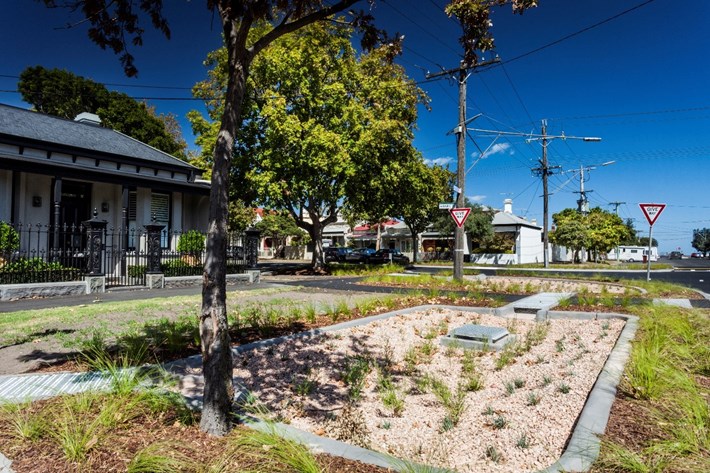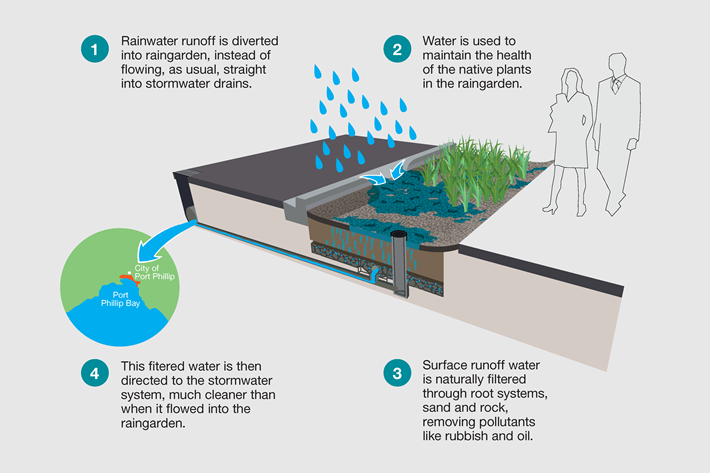Drainage and stormwater infrastructure
Protecting our waterways and our Bay
Over 10,000 drainage pits connect into our stormwater drains. Litter and pollutants like cigarette butts, detergents and dog faeces wash into our stormwater drains when it rains. This means any waste that reaches our gutters flows directly into Port Phillip Bay and beaches.
Polluted stormwater not only adds to litter on our beaches, but also creates poor quality water and higher bacteria counts. Nutrients from fertilisers, food scraps, plant waste and other organic materials promote plant and algae growth, which further impacts the health of the Bay.
Each summer, the Environment Protection Authority (Victoria) program provides the community with information on water quality and beach conditions.
Stay up to date with the latest news on the environmental condition of your local beach.
Stormwater harvesting systems
Stormwater harvesting systems collect, clean and store stormwater for reuse, generally for irrigation. Using stormwater from our drains means we can save precious drinking water. These systems also reduce the flow of water and pollutants entering our waterways and the bay.
The Council uses stormwater for the irrigation of our parks with two stormwater harvesting schemes: the Elsternwick Park Stormwater Harvesting Scheme (a partnership with the Bayside City Council), and the Alma Park Stormwater Harvesting Scheme. These two schemes can deliver up to 48 million litres of harvested stormwater combined, significantly reducing the Council's mains water usage and providing resilience in times of drought. They also cleanse and collect stormwater, contributing to the protection of the water quality of the Bay.
Improving stormwater quality
Raingardens
We're working to improve the quality of stormwater through the use of Water Sensitive Urban Design (WSUD), which removes nutrients, solids and litter from stormwater before they enters the stormwater system.
WSUD is incorporated into the stormwater system at 238 locations throughout our City, including the rain gardens at Fitzroy Street in St Kilda, Coventry Street in South Melbourne and Carlisle Street in St Kilda East.
Rain gardens resemble nature strips, but are carefully designed and constructed to capture and filter stormwater collected from adjacent roads.

Raingarden in Park Road, Middle Park

Litter traps
We've installed litter and gross pollutant traps at 19 locations throughout the municipality along drains connected to the Bay.
Litter and gross pollutant trap can capture most forms of litter, including something as small as a cigarette butt. Up to 100 tonnes of litter is trapped each year - the equivalent of 18 full garbage truck loads of waste.
Flood preparedness
For more information on how to prepare for floods, see our Extreme weather - Floods page.